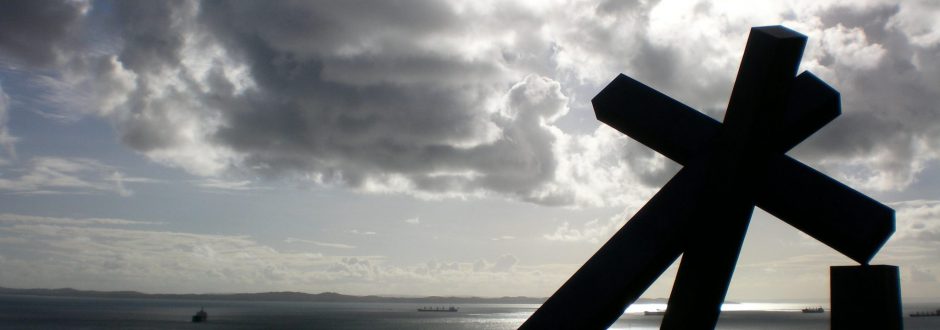This year the pain of the passion story may contain a deeper significance than ever before, says Tony Doherty. And with it a new sense of adult responsibility we all bear to remake this harsh and gentle world.
BY Tony Doherty
If today you are asked to place this world of ours on the scale of “good or bad”, to which side of the scales would your opinion tip?
Faced with the breakdown of institutions, the hypocrisy of those we have trusted, the total lunacy of world leaders, the violent destruction of lives and entire cities, the explosion of illegal drugs, the balance shifts alarmingly to one side.
And yet, there is a quieter evidence, admittedly far less spectacular, of the undoubted goodness we are capable of, the patient compassion, the determination to take responsibility for our actions, acts of breathless generosity and at times immense creativity – such qualities somehow survive. Garrison Keillor catches it: “Even in a time of elephantine vanity and greed, one never has to look far to see the campfires of gentle people”.
But then come the catastrophic findings of the Royal Commission into Institutional Responses to Child Sexual Abuse. As a priest, I must sadly admit, it is hard to think about ‘gentle campfires’.
Despite all the warnings, the results have been devastating.
Trying to wrap your imagination around the damage that has been done to the lives of so many innocent children, many of whom now suffer seriously reduced adult lives, damage that is sometimes unable to be repaired – seems an impossible task.
And yet it is imperative to do so.
All of us, but particularly those like myself involved in formal ministry in this Church, need to feel the pain. Stay with the cry of those who have been damaged. Find some way to heal the harm. Is this Church, which we love, the bandage or the wound?
It is crucial that we stay with the reality and not search for some hasty defence of what has happened. The analgesic society we inhabit doesn’t help. Avoidance of pain has become an industry. We are practiced in dodging discomfort. The ability to distract ourselves comes home delivered through 103 channels. There is always the next crisis to divert our attention. Turn on the footy. Another white wine. If all else fails there remains the crowded shelves of our local pharmacies to dull the ache.
Our Church has to face nothing less than the reality of major surgery. And its consequent pain. No simple regime of little pink pills will deal with this tumour. Getting back to business as usual is an unthinkable option.
How to genuinely address the needs of those damaged, or even their wounded families, needs the clearest and courageous imaginative action – firstly by those of us sharing some form of leadership in this shell-shocked Church, but also by all of us who choose to engage with a new responsible adult community of faith.
It will take uncommonly honest reflection, the clearest minds, and inspired leadership – of both women and men. It will also take balance and the steady hands of a surgeon.
Pain can be destructive. Pain, however, can also contain the energy required for this massive task.
A former Anglican bishop Richard Holloway spells out in the following words the stormy waters in which we all swim, and in the midst of which we strive to find our sanity, our balance and the energy to navigate a new future. His words capture, in my opinion, what is best understood as the virtue of hope – genuinely adult, not sentimentalised Christian hope.
“It is a harsh world indescribably cruel.
It is a gentle world unbelievably beautiful.
It is a world that can make us bitter, hateful, rabid
destroyers of joy.
It is a world that can draw out tenderness in us as we lean
towards each other over broken gates.
It is a world of monsters and saints, a mutilated world,
but it is the only one we have been given.
We should let it shock us not into hatred and anxiety, but into
unconditional love.”
It is a gentle world unbelievably beautiful.
It is a world that can make us bitter, hateful, rabid
destroyers of joy.
It is a world that can draw out tenderness in us as we lean
towards each other over broken gates.
It is a world of monsters and saints, a mutilated world,
but it is the only one we have been given.
We should let it shock us not into hatred and anxiety, but into
unconditional love.”
Easter is celebrated in a few weeks. This year the pain of the passion story may contain a deeper significance than ever before. And with it a new sense of adult responsibility we all bear to remake this harsh and gentle world.
This article was first published on Tony Doherty’s blog on March 6, 2017.
